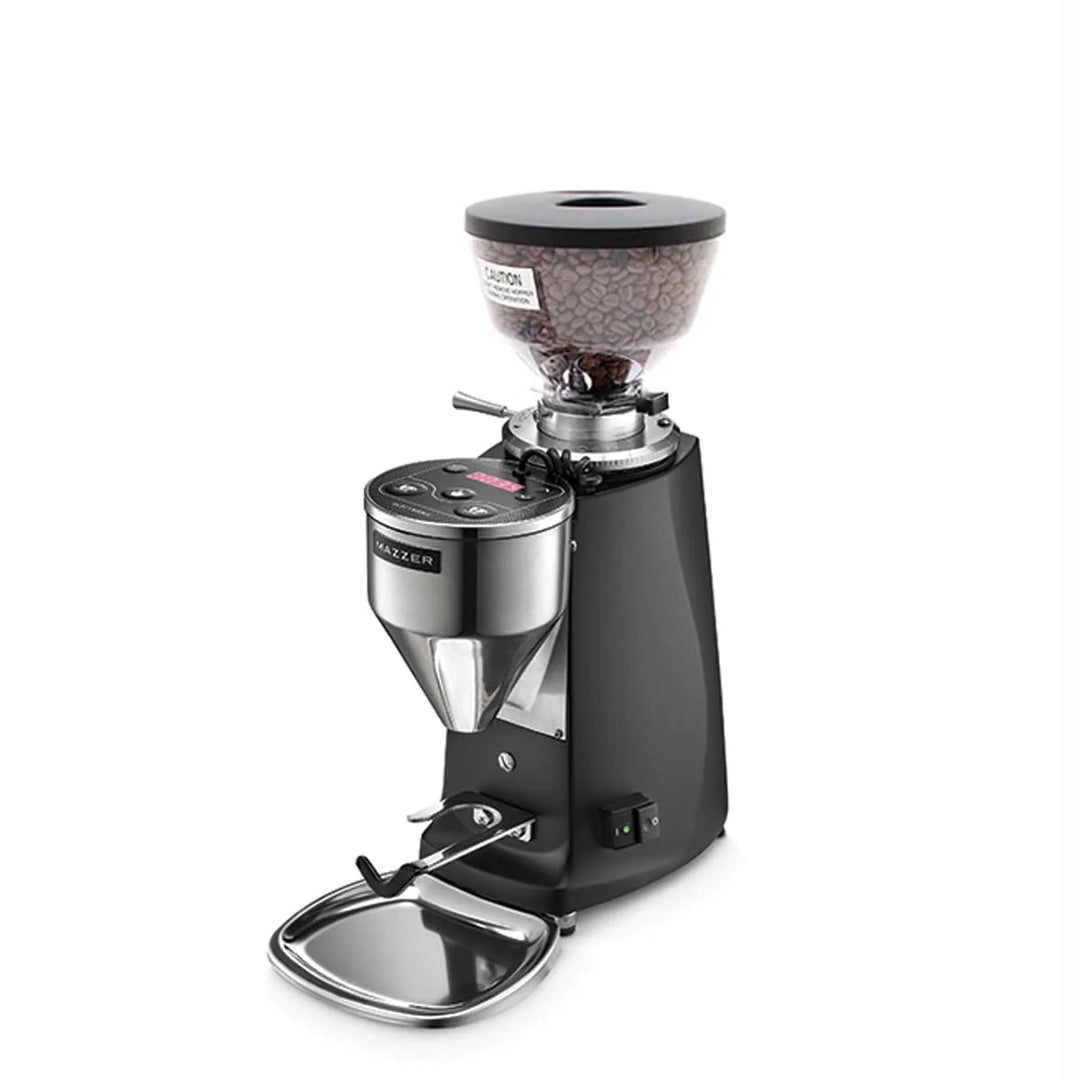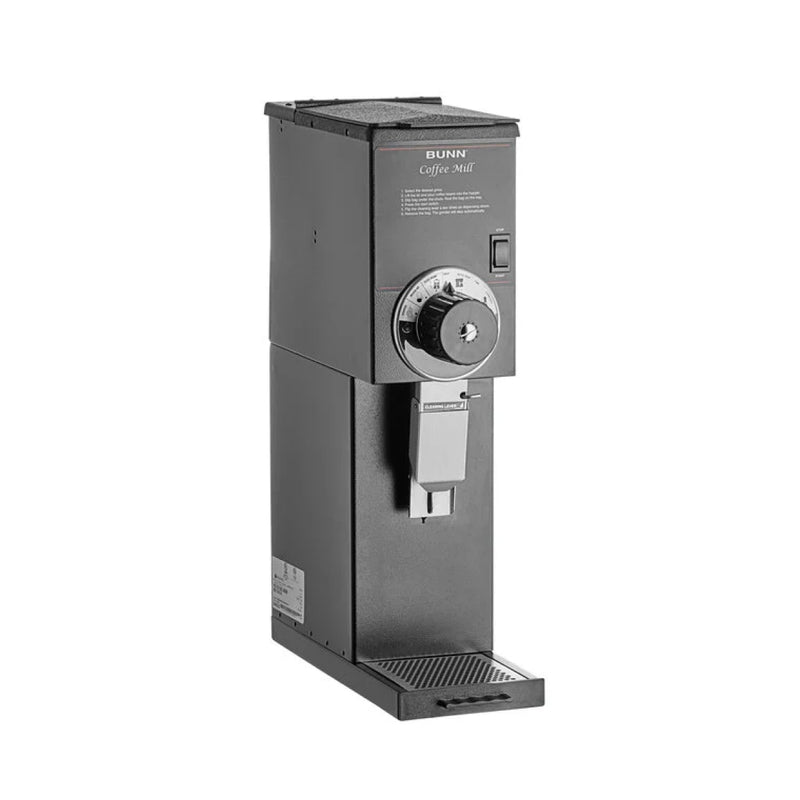Exactly How to Choose the Perfect Industrial Coffee Mill for Your Company
Selecting the optimal commercial coffee mill for your business is a diverse choice that calls for mindful consideration of several vital variables. Additionally, understanding the various types of grinders offered can dramatically affect your functional efficiency.
Assess Your Grinding Needs
When selecting an industrial coffee grinder, one should first evaluate their grinding requirements to make sure ideal efficiency and uniformity. This preliminary examination entails recognizing the quantity of coffee to be refined daily, as well as the desired grind dimension for numerous developing methods. A high-capacity grinder might be needed for organizations offering huge amounts of coffee, while smaller sized operations may discover a more compact model sufficient.
Additionally, it is necessary to think about the sorts of coffee beans being used, as various beans might call for details grinding strategies to achieve the best taste account. Oily beans could require a grinder made to manage such qualities without clumping or overheating.
An additional important element is the required work consistency. Specialized coffee companies frequently require accurate work sizes to enhance removal and flavor, making it crucial to choose a mill that can deliver consistent results. Evaluating the offered space and electrical needs will assist in picking a grinder that fits flawlessly into your operational operations. By thoroughly examining these factors, services can make enlightened decisions that line up with their coffee grinding demands, ultimately causing a premium product and pleased consumers.
Understand Grinder Kind
Recognizing the various kinds of industrial coffee grinders is important for making an educated selection that fulfills particular functional requirements. There are primarily two groups of grinders: blade grinders and burr grinders.
Blade mills use spinning blades to slice the coffee beans, causing an irregular work size - Industrial Coffee Grinder. While they may be more inexpensive, they are typically not appropriate for industrial applications where precision is important
On the other hand, burr grinders provide a more consistent work by squashing the beans between two surfaces. They can be more classified into flat burr and conical burr mills. Apartment burr grinders provide a consistent grind dimension and are normally preferred for espresso preparation, while conelike burr mills are flexible and can deal with a series of mixture approaches, from espresso to French press.
When choosing a grinder, consider the details requirements of your company, including wanted work consistency, manufacturing quantity, and the types of coffee drinks you prepare to provide - Industrial Coffee Grinder. Each mill kind has its advantages and constraints, so recognizing these nuances enables educated decision-making that aligns with functional goals
Evaluate Work Size Uniformity
Accomplishing work size uniformity is necessary for producing high-quality coffee, as variants in particle dimension can considerably influence extraction and taste. When selecting a commercial coffee mill, it is important to evaluate exactly how well the machine keeps uniformity in grind dimension across different batches. Irregular work dimensions can cause irregular removal, causing YOURURL.com a mug that might taste weak or excessively bitter.
To assess work dimension consistency, think about mills with features such as flexible work settings and top notch burrs. Burr grinders, specifically, succeed in creating consistent particle sizes contrasted to blade mills. The product and shape of the burrs play a crucial duty, with stainless steel and ceramic choices offering click over here longevity and precision.

Consider Production Capacity
In the fast-paced world of coffee production, taking into consideration manufacturing capability is extremely important for services aiming to meet demand without sacrificing quality. The production capacity of an industrial coffee mill straight affects a firm's capacity to meet orders effectively, handle stock, and reply to varying market trends.
When evaluating production capacity, it is vital to assess the grinder's output rate, usually determined in pounds per hour. This measurement needs to straighten with your organization's forecasted sales volume and growth targets. As an example, a coffee shop with a high turn over may require a mill that can refine a number of hundred pounds daily, while a smaller procedure could be adequate with a reduced ability version.
In addition, take into consideration the sort find out this here of coffee being processed. Various beans and blends may influence grinding speed and efficiency, requiring a grinder with the ability of managing diverse production demands. It's likewise worth factoring in the grinder's capacity to keep regular high quality under high output problems, as any type of fluctuations can influence the end product.
Eventually, picking a grinder that matches your business's manufacturing capacity will certainly ensure you stay receptive and affordable to client expectations.

Budget and Upkeep Elements
When examining the appropriate industrial coffee grinder, spending plan and maintenance factors play a considerable function in the total decision-making procedure,. A first investment in a high-grade grinder can yield long-lasting advantages, yet it's vital to establish a clear budget plan that lines up with your service's functional demands. Take into consideration both the acquisition price and potential operational costs, such as energy consumption and replacement parts.
Industrial coffee grinders call for routine upkeep to guarantee ideal efficiency and durability. Examine the producer's suggestions for upkeep, consisting of cleaning schedules and parts substitute, as these will affect lasting functional prices.

Spending in a grinder that is sturdy yet simple to keep can conserve cash with time. While lower-priced options may be tempting, they might incur greater upkeep expenses and lowered effectiveness. Inevitably, balancing first costs with long-lasting maintenance and operational performance will assist you to the most effective option for your organization's coffee grinding requirements.
Verdict
Picking the ideal industrial coffee grinder necessitates a comprehensive examination of grinding requirements, grinder types, grind size consistency, production capacity, and budgetary considerations. An appropriate mill not just improves the high quality of the coffee created however likewise contributes to the overall success and profitability of the enterprise.
Specialty coffee businesses often demand precise grind dimensions to boost removal and taste, making it crucial to select a grinder that can deliver uniform results. Flat burr mills supply a regular work size and are generally favored for espresso prep work, while conelike burr mills are flexible and can deal with a range of mixture approaches, from coffee to French press.
When selecting a commercial coffee mill, it is important to assess how well the machine keeps harmony in grind dimension across different sets. Burr grinders, in certain, excel in generating consistent fragment dimensions compared to blade grinders.Selecting the perfect industrial coffee grinder necessitates a thorough evaluation of grinding needs, mill kinds, grind dimension consistency, manufacturing ability, and budgetary factors to consider.
Comments on “Industrial Coffee Grinder: Choosing the Right Model for Your Requirements”